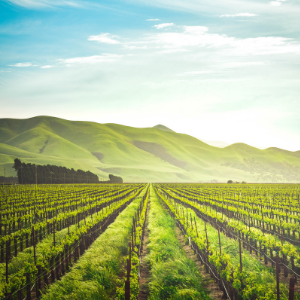
As South Africa battles to contain the spread of the Covid-19 coronavirus, there is no need for people to panic about the shortage of food supplies because the country’s export-oriented agricultural sector is producing enough.
Agricultural Business Chamber chief economist, Wandile Sihlobo, said on Wednesday that the country has enough food for at least the next 12 months, but the impact of the Covid-19 outbreak on food price inflation was still unclear.
South Africa exports half of its agricultural produce and imports rice from Asia and the Far East; wheat from the US; palm oil from Indonesia and sunflower oil and poultry from Malaysia. The country imports 100% of its rice and palm oil and 50% of its wheat.
“Some of the countries which have reported cases of Covid-19 have not taken drastic measures of limiting business activity [apart from Italy and China] to reduce the spread of the virus.
“This means the importation of some agricultural products could continue unabated, barring any unforeseen eventuality,” said Sihlobo.
Imported sunflower oil and poultry could be replaced by local supplies should there be shortages, he said. Wheat production in 2019/2020 will increase to 764 million tons and rice will remain unchanged at 499 million tons.
The outbreak of the virus has triggered panic buying across the country as people fear there could be food shortages, especially during the 21-day lockdown that starts at midnight on Thursday. It ends on April 16.
“South Africa has ample food supply for this year and therefore there’s no need for panic-buying,” Sihlobo said. “There are high prospects for an abundant harvest of staple grains and fruits this year, which will increase the local supplies.
“In the unlikely event of shortages, it will be due to glitches in the logistics of shipping imports rather than a decline in essential grain supplies,” he added.
Sihlobo said that the readiness of the domestic food supply chains would be tested in the coming weeks and months if panic-buying arising from fears of that the pandemic could peak to levels seen early this month in the UK and the US.
On food price inflation, he said the chamber placed it at about 4% compared to 3.9% last year.
“The uptick is associated with a potential increase in meat prices rather than the Covid-19 pandemic,” he said.
The country will only be hit if there is a slow down in export demand leading to a decline in agricultural commodity prices. Asia and Europe, which are hardest hit by Covid-19, exported agricultural products worth $10 billion (R173 billion) last year.
Sihlobo said the pandemic’s disruption would affect the agricultural sector because of its R168 billion debt to commercial banks, the Land Bank, cooperatives and individuals
UN warns of shift in buying
The UN Food and Agriculture Organisation (FAO), says since the outbreak of Covid-19 last year, there has been a significant increase in the demand for food. The FAO predicts that there will be a disproportionately larger decline in meat consumption as a result of the unscientific fears that animals might be the host of the virus.
Since food demand in poorer countries is more linked to income, says the FAO, loss of income earning opportunities could impact consumption.
“Fear of contagion can translate into reduced visits to food markets. We expect to see a shift in how people buy and consume food – lower restaurant traffic, increased e-commerce deliveries [as seen in China during the lockdown), and a rise in eating at home.”
The organisation has warns of a looming world food crisis, unless measures are taken fast to protect the most vulnerable, keep global food supply chains alive and mitigate the pandemic’s impacts across the food system.
 |
| ||||||||||||
| |||||||||||||




 Publications
Publications
 Partners
Partners








